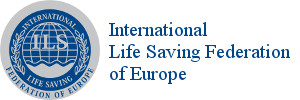Many beach operators throughout Europe currently apply for a Blue Flag to fly at their location, to show that their beach has reached agreed standards according to the criteria laid down by the Foundation for Environmental Education (FEE) Blue Flag Campaign. However, this criteria involves mostly environmental issues and has not included enough aspects of safety.
The safety aspect is getting more and more relevant, because the drowning figures all over the world are much too high and do not decrease enough. Only in Europe 35,000 – 40 000 people loose their live by drowning every year.
During recent years the International Life Saving Federation of Europe (ILSE) and the FEE agreed a common approach to the Beach Management Criteria for the Blue Flag.
Risk Assessments
It was agreed that Risk Assessments must be carried out by appropriately trained personnel on all designated bathing areas.
The Rescue Commission of ILSE has therefore developed a strategic approach to Risk Assessments, which will make a significant contribution to the safety of European bathing areas.
A properly implemented programme of Risk Assessment will assist greatly in the prevention of drowning fatalities and bathing related injuries. Such a programme will fix the necessary number of lifeguards and equipment, assist effective beach management and would therefore be beneficial to Beach Managers, Lifeguards and Local Authorities/Beach Operators in general.
Risk Assessments should be part of the collaboration FEE/ILSE and should be included in the Blue Flag application process in future.
The Risk Assessment is divided into eight sections which cover the following areas:
- The area surveyed – The extent and description of the area surveyed
- Area usage and Activities – To include any areas to be zoned
- Emergency Service Access – Ease of access for emergency services
- Public Rescue Equipment – Any available rescue equipment for use by the public
- Signage – Availability of appropriate signage
- Safety Information Board – Availability and location of safety information
- Hazards and Risks – Identify, classify, remove or minimise
- Lifeguard Provision – Where necessary, appropriate provision, equipment, facilities and location
This model has been developed specifically for ILSE accredited Risk Assessors who will carry out the assessments on the designated bathing areas within the European region.
Risk Assessors
The national Member Associations of ILSE offer yearly different course. Here the first overview about courses planned in 2024.
For further information please get in contact with the ILSE Secretariat secretariat@ilseurope.org
All risk assessors must have successfully undergone training and assessment courses conducted and approved by ILSE.
Accredited Risk Assessors are active in ILSE Member Associations in several countries in Europe: Bosnia-Herzegowina, Croatia, Denmark (DSF), Estonia, Germany (DLRG), Greece (HRC), Ireland, Latvia, Montenegro, The Netherlands (KNBRD), Norway, Switzerland, Serbia.
